Sake, the Japanese rice wine, is Luis’s idea of a great drink.
Sake is hugely popular in Japan, but not commonly drunk overseas, as people default to more familiar alcohol options, like beer, wine and whiskey.
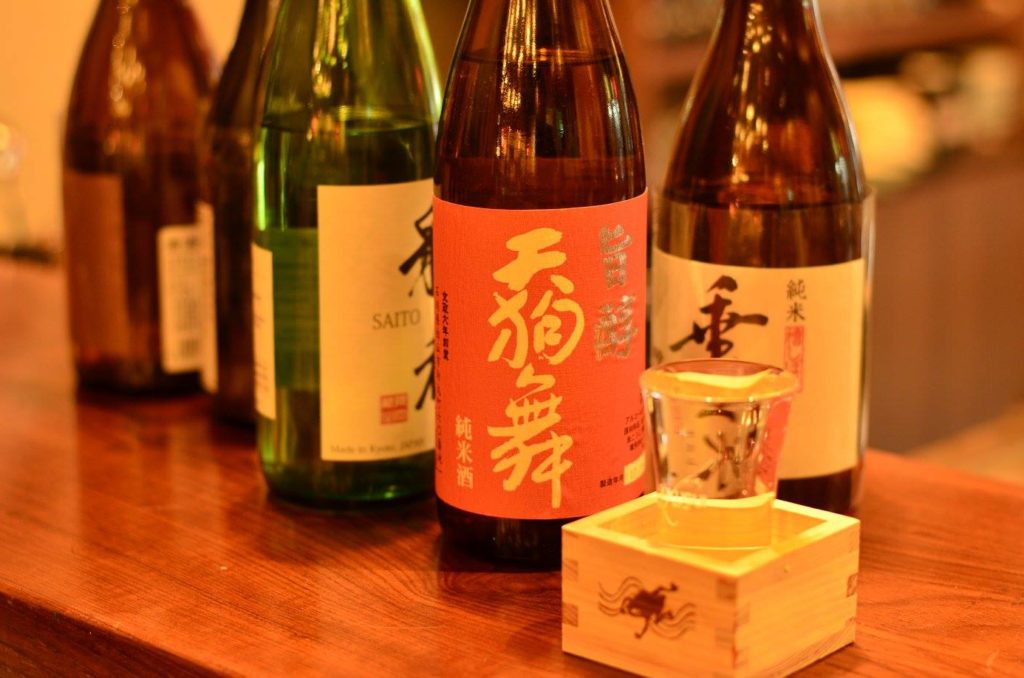
Luis wants to change that.
Like wine, sake is a sophisticated and complicated drink. There are many different types of sake, each made from the heart and soul of the brewer.
There is an art to drinking sake. Choosing the right sake to pair with your meal is a skill in of itself. The most authentic experience can be found in Japan, but there’s somewhere in Singapore where you can savour sake and learn more about it.
“Educational Selling” at Shukuu Izakaya Sake bar.
Shukuu Izakaya is the brainchild of four lifelong friends; Luis, Mario and two other partners: a traditional izakaya bar made for people who want to chill and relieve their stress after a hard day’s work.
Interested to know how Shukuu has fared since it started, I reached out to Luis for a chat.
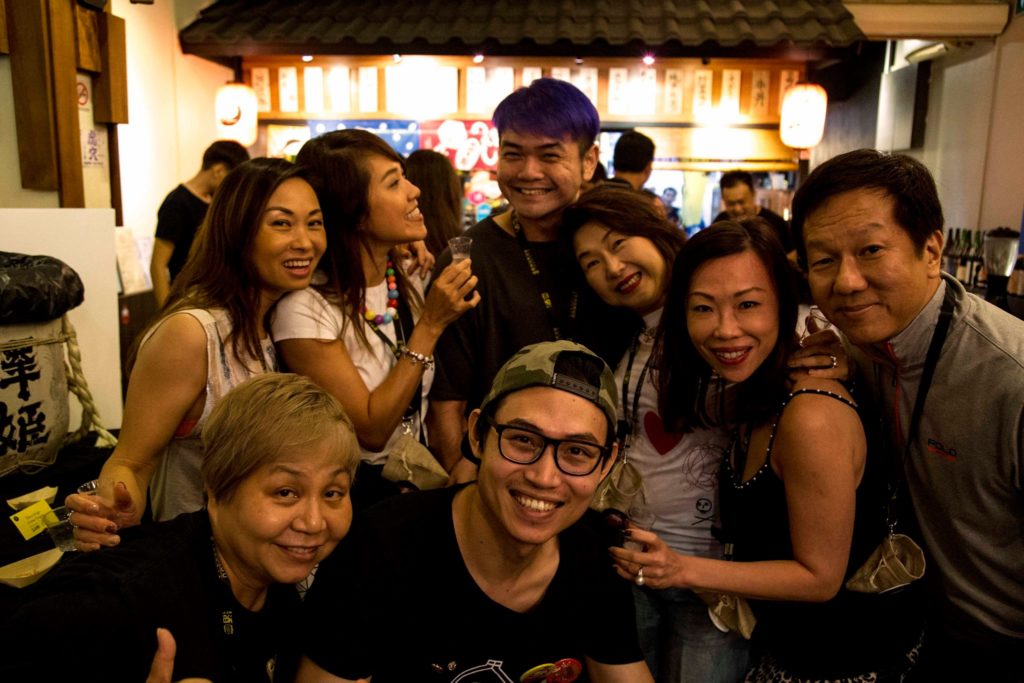
Luis and his customers
And this is his story.
Luis wanted to bring the izakaya culture to Singapore
Ever since he wanted to impress a Japanese girl he liked in primary school, Luis has immersed himself in the Japanese culture.
Name any popular manga like Slam Dunk or One Piece, Luis has read them. His fellow co-founders, who are childhood friends, have the same obsession.
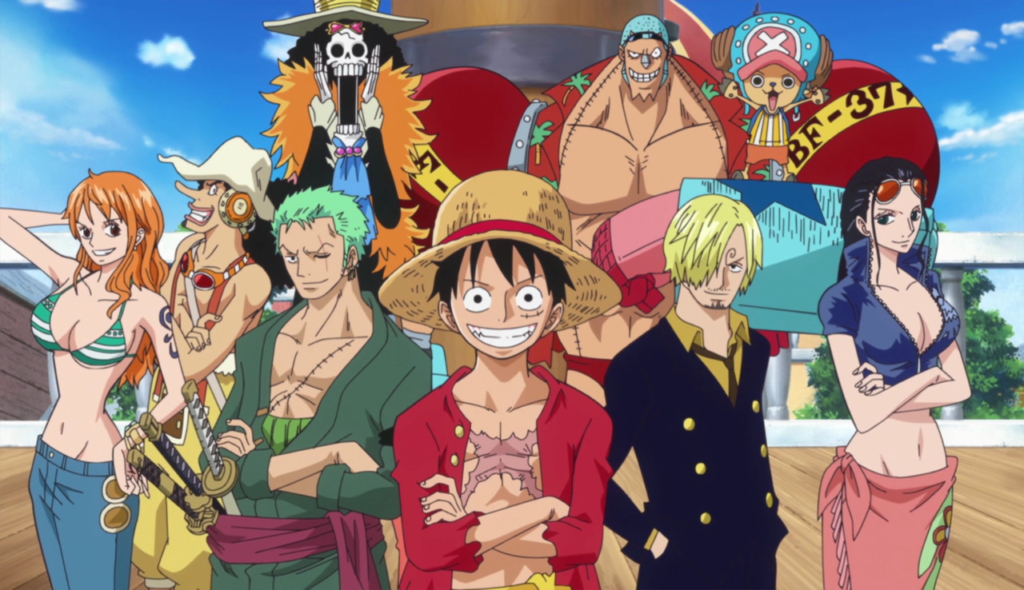
To be fair, I like One Piece too.
Since primary school, they were already meeting up regularly to buy comic books, talk Japan and eat Japanese food. Even when they split up and entered different schools, they still met up weekly to try different Japanese restaurants, and talk about their love for Japan.
And it was from these conversations that an idea was born.
Seeing that all four of them were into Japanese food, one of them suggested starting a Japanese restaurant together. But none of them treated it seriously, until one of them couldn’t get a job after graduation, and suggested again to set up a restaurant together.
This time, it was real.
Remembering the enjoyable and relaxing experience they had when they visited an izakaya in Japan, they wanted to recreate the same drinking paradise back in Singapore. They wanted to give the corporate workers in Singapore the same enjoyment and stress relief as the Japanese sarari-men.
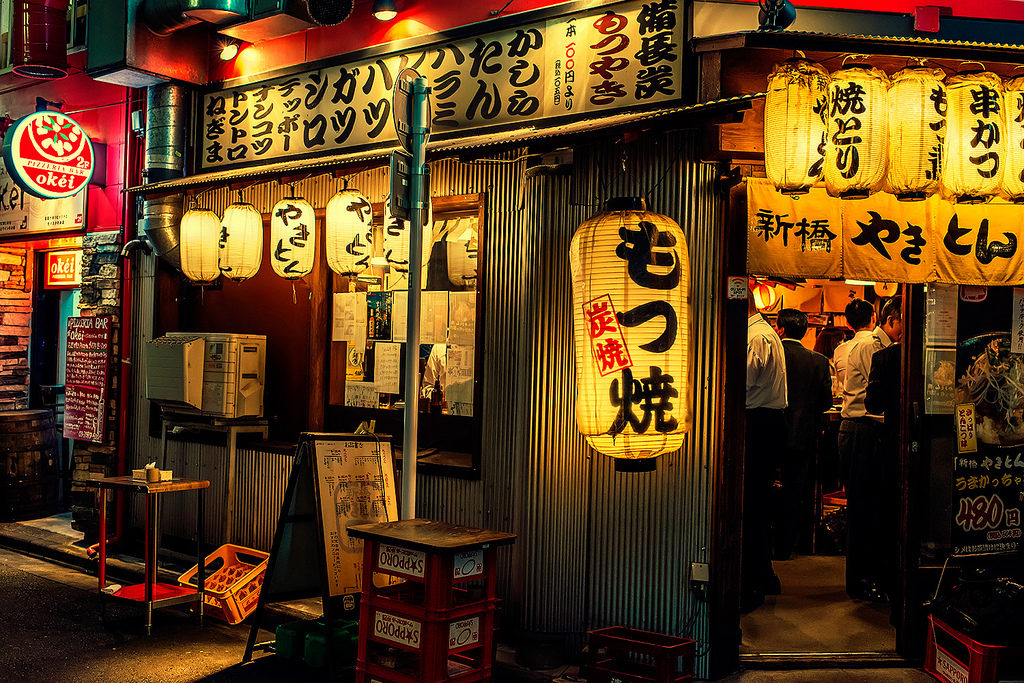
As if you were sipping sake right in Japan
Shukuu (‘shu’ meaning alcohol, and ‘kuu’ meaning paradise or heaven) was born.
In only about 6 months, Shukuu was struggling.
In 2015, a huge haze, stemming from the illegal slash-and-burn practices on the Indonesian islands of Sumatra and Kalimantan engulfed Singapore. The Pollutant Standards Index (PSI) level (an air quality index) hit a whopping 341, a record high for Singapore. (Any number above 300 is considered hazardous.)

Haze in Singapore – and no, the photo isn’t edited.
This also meant that nobody wanted to stay out, let alone dine outside.
For a restaurant business that depended on people staying out and enjoying themselves, this was a disaster.
It impacted Shukuu really badly.
For a period of 3 months straight, hardly anyone came to Shukuu. Business suffered.
Luis was white with worry. There was a possibility of him losing all his money. That was acceptable to him; he took the risk, he was ready for the consequences. What was not acceptable was potentially losing all the money he had borrowed from his parents to set up Shukuu.
It was the worst 3 months of his life.
He couldn’t sleep. Even if he tried to, he would wake up in the middle of night, wondering what was going to happen to Shukuu’s fate.
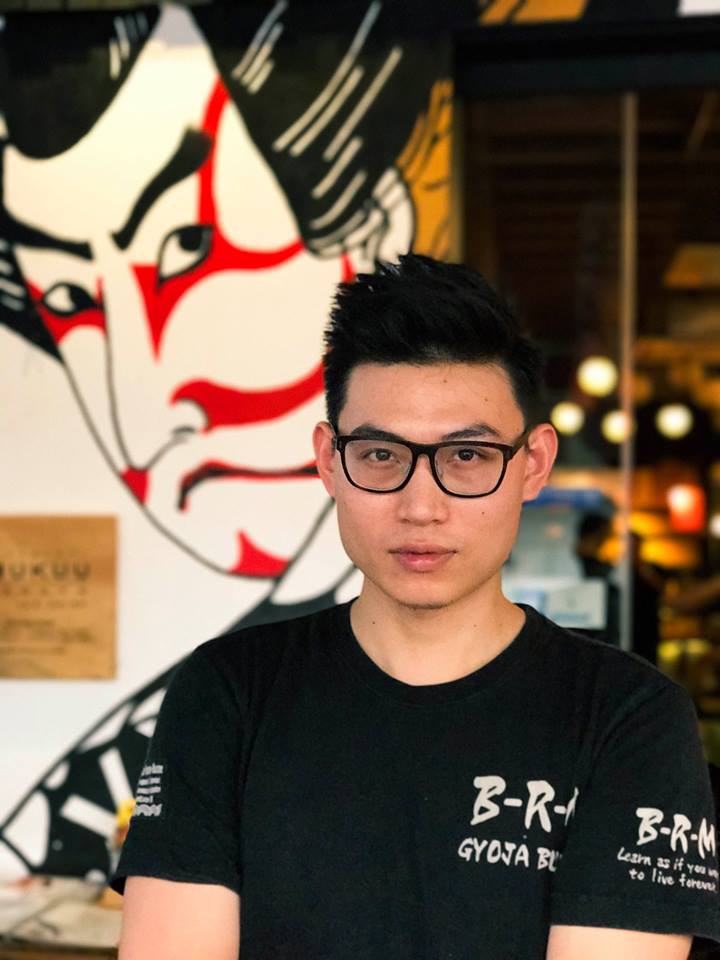
Luis smiling stoically
Would Shukuu survive?
Then, slowly, something miraculous happened.
During the 3 months, there were a few daring customers who had braved the haze to dine at Shukuu. These customers would eventually become loyal regulars.
And when the haze was finally over, they started to bring their friends to Shukuu, one by one. These regulars had referred their friends to dine there, and their friends had referred more friends down to try Shukuu.
Word-of-mouth was working.
It was a subtle nod of acknowledgement to Shukuu’s food, sake and service. Despite their struggles, they had done enough to convince customers that they were a restaurant worth going back to, that customers wanted to share with their friends.
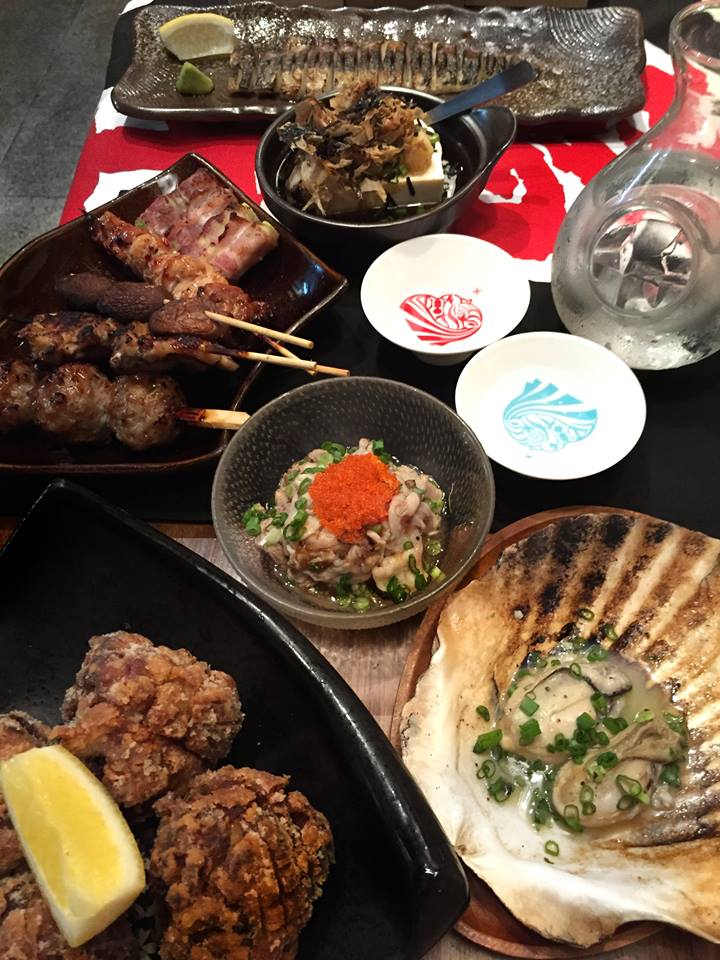
The food is gorgeous – but spot the special sake bottle and Merlion sake bowls
After 3 months of desperate struggling, fervent worrying and anxiety-fueled thoughts…
Shukuu was saved by one of their fundamental beliefs: Educational Selling.
As I mentioned in the introduction, sake is not a common alcohol choice outside of Japan.
But, as an izakaya bar, Shukuu IS all about sake. They even have 70 different types of sake you can choose from to accompany your meal.
But since it’s an alcohol unfamiliar to many, nobody actually knows what kind of sake to order, and what it pairs well with.
Luis knows that.
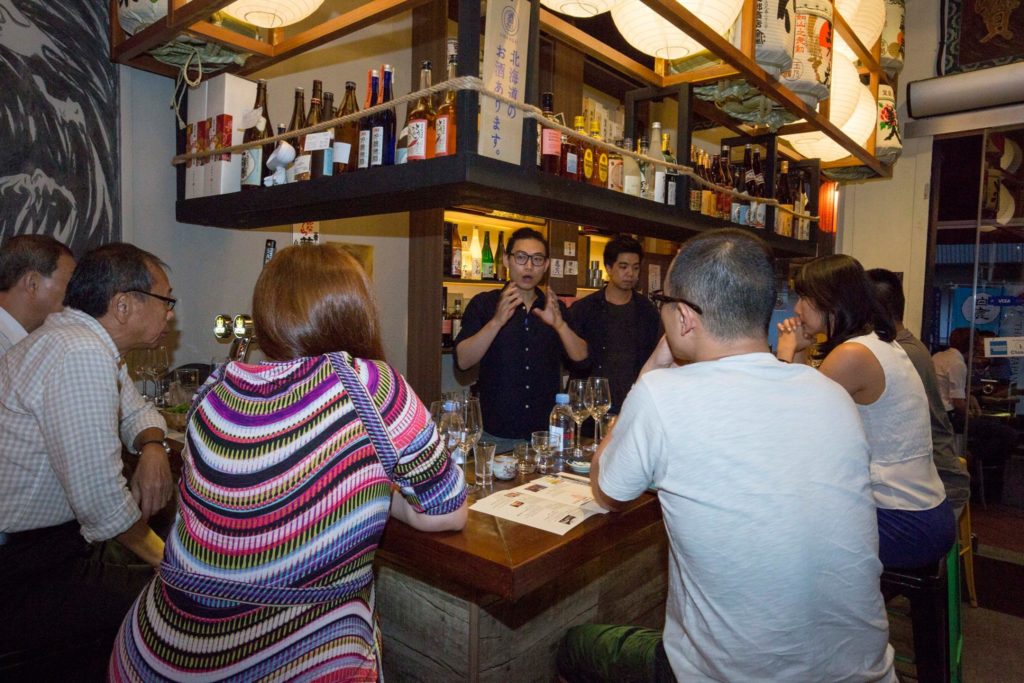
Luis sharing about sake
And that’s why educational selling is a big part of what Shukuu Izakaya does.
Luis explains:
“If I teach you something today, you are proud of it. You will teach these things to your friends. And you will put me in your favourite list. And you will come back to me again, hoping to get more information you can tell your friends. Everyone enjoys the feeling of being better than other people. So if you can continue to provide certain information to them, they will treat this place as their favourite place.”
When a customer dines at Shukuu, he isn’t dining at an establishment where the waiters stare at their phones and chefs hate you.
When a customer dines at Shukuu, he or she is actually dining at a Japanese izakaya bar where waiters treat you as if you were dining at Joel Robuchon.
The service crew talks to you about the kind of sake you’re drinking, and teaches you about the different types of sake. They make recommendations, give suggestions and tell you if you’re ordering too much, or ordering the wrong type of sake.
They are “fine dining” without fine dining prices. The experience is less about circumstance and pomp, but about the care and attention lavished by the staff.
And these service staff aren’t secretly Googling behind their backs and reading off Wikipedia.
These are real experts.
Luis is a Sake Service Institute (SSI) International Kikisake-shi (Master of Sake) and a Sake Sommelier Association (SSA)-Certified Sake Sommelier. So is Mario, the co-founder. And so are two of their full-time staff.
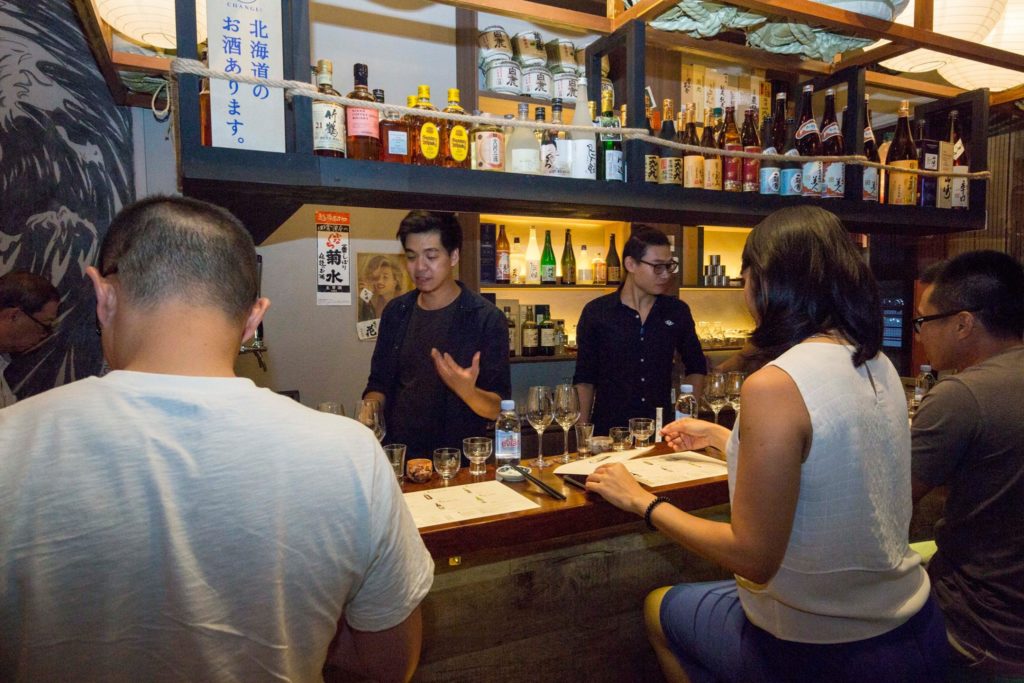
This is a restaurant fully dedicated to their expertise – sake. This is a restaurant who wants to bring honest, sincere service to you by learning and educating you about their expertise.
And this is a restaurant filled with passion for the Japanese culture. Luis says it best; it’s not about what Shukuu Izakaya offers, it’s about why. It’s not just a business, it’s a desire to share his passion.
And that is the reason why customers love them, come back often and tell their friends.
What’s next for Shukuu?
At the time of writing, Luis told me that he is currently planning to achieve the level of Sake Educator.
This means that he will be officially able to teach sake appreciation classes and give out Sake Sommelier certificates to anyone who wants to take up the challenge.
Once he is ready, he will convert the upper level of his restaurant into a “sake classroom” where he can hold classes and teach people about sake and sake appreciation.
Being #1 is not a matter of serving good food, having customers and staying content. Being #1 is constantly improving and constantly striving to be excellent at what you do and what you know. In a way, customers can taste the sincerity and sense the passion in the atmosphere.
With heart, sincerity and huge doses of passion, Shukuu will charge past its competitors and remain relevant for years to come.



